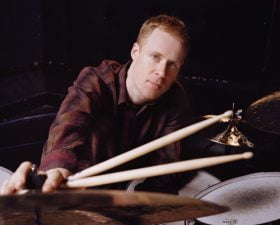For the first part of Nicholas Payton’s career, he was effectively in the business of knocking you back in your chair. These days he seems to want to make you lean forward instead.
The transition wasn’t sudden, not if you’ve been attuned to his music over the last decade. Still, it can be a striking thing to absorb over the course of a set, like the one on Thursday that began his four-night run at Dizzy’s Club Coca-Cola.
Tweaking expectations is an essential part of the aesthetic process for Mr. Payton. When he emerged on the national scene some 20 years ago, he was held up as the latest in a line of thrilling young jazz trumpeters from New Orleans. He’s now 41, and has pushed back against most of those parameters, none more so than “jazz,” which he sees as a slur, a vestige of longstanding cultural oppression. (His disquisitions on the matter, going back a few years, can be found at nicholaspayton.wordpress.com.)
Mr. Payton’s vision for BAM — for “Black American Music,” his approved term of art — pointedly does away with genre classification. “Numbers,” the new album on his Paytone label, features him mainly on a Fender Rhodes piano, playing a series of sketchlike tunes with Butcher Brown, a groove-minded young band from Richmond, Va.
The trio appearing this week has Vicente Archer on bass and Bill Stewart on drums — a lineup better suited to hard-swinging exposition, but also at home with strutting funk. Mr. Payton occupied a corner of the stage, hemmed in by a Rhodes and a grand piano, both of which he handled with skill; his clanky touch was offset by his harmonic fluency and clarity of ideas. On “Two,” from the new album, he used his keyboard solo as a mounting preamble, bringing the pot to a boil before switching to trumpet.
Right, trumpet. Mr. Payton didn’t neglect his primary instrument, per se, but he was stingy with it; when he did a solo on the horn, he favored terse riff-building over the more essayistic outpourings of yore. (Even “#BAM Live at Bohemian Caverns,” a trio album released last year, features a lot more trumpet than he played here.)
So the most bracing moments came when he locked into a motif on trumpet and shadowed it on the Fender Rhodes, creating tricky arrangements on the fly. He did this on Mr. Stewart’s tune “7.5,” and again on Thelonious Monk’s “Straight, No Chaser,” after framing a pointillist reduction of the theme, all peekaboo syncopations.
Another high point, unexpectedly, was “Shades of Hue,” a beseeching, quiet-storm ballad featuring Mr. Payton on vocals. His singing has improved in recent years, so much so that his trumpet solo, when it came, felt merely like a welcome flourish rather than some kind of rescue mission.







More Stories
CD review: George Benson – Dreams Do Come True: When George Benson Meets Robert Farnon – 2024: Video, CD cover
The band was tight as ever. The Warren Haynes Band cuts loose: Video, Photos
Interview with Alvin Queen: Feeling Good – I heard these tunes played by … Video, new CD cover, Photos